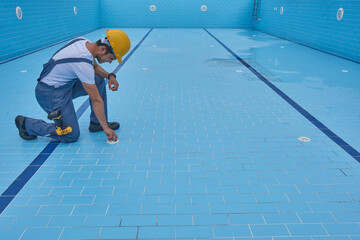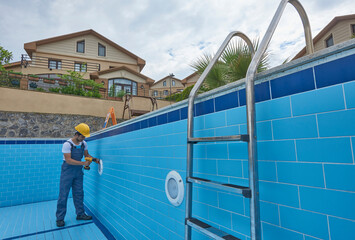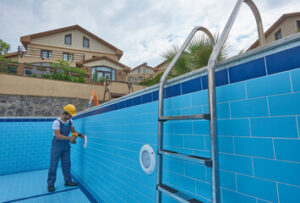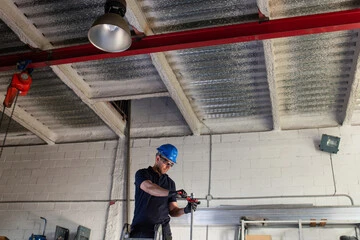Some buyers want a pool to increase their home’s value, while others want a nice backyard for relaxing and entertaining. A new pool is a big investment that should be well thought out and planned. It’s a great way to enjoy the summer, but it can also add to your home’s value if done correctly. Regardless of your reason for installing a pool, here are the steps to get one built.
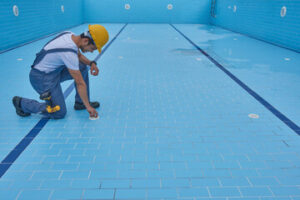 The design of a pool installation should be tailored to the size, shape, and site conditions. It should also comply with local and state safety regulations. The landscape surrounding the pool should blend well with the rest of the property. This includes blending the pool with the house and landscaping, and creating a transition from the house to the pool area. Read on to learn more.
The design of a pool installation should be tailored to the size, shape, and site conditions. It should also comply with local and state safety regulations. The landscape surrounding the pool should blend well with the rest of the property. This includes blending the pool with the house and landscaping, and creating a transition from the house to the pool area. Read on to learn more.
The pool design can also depend on the special features you want to be installed. For example, a rock waterfall, an attached spa or a sun deck can significantly influence the pool’s shape and overall appearance. Preparing the area your new pool will call home is essential to a successful installation. This is why it’s a good idea to get this done well ahead of time.
Leveling and removing rocks, stumps, and other debris is a good start. Once this is completed, the site can be poured with concrete to form a solid foundation.
It’s also a good idea to choose an area that’s already fairly level, and not too close to trees, plants, or any other hazards in the yard. This will save you headaches later on down the line.
When you are planning a pool installation, excavation is one of the most important parts. This includes preparing the site, leveling and trenching, and digging the holes for the pool.
Ground collapse is a major risk in excavation work, and workers are prone to being buried or suffocated.
Controls are aimed at reducing the likelihood or severity of an excavation-related harm event.
If an excavation is in loose soil, shoring designed and installed to carry extra loads should be used instead of placing or stacking spoil near the excavated face. Ensure there is a minimum of 1 m between stockpiling and the pit so the soil does not sweep into the excavation during rain or other forces.
Whether you’re building a pool for your home or a commercial space, steel frame construction is one of the most reliable and cost-efficient solutions. This is due to the fact that steel structures are extremely durable and resistant to rust.
Besides being a cost-efficient solution, steel frame construction also allows for faster and easier installation. This means that you can get your project completed much faster and without sacrificing the quality of the final product.
Plumbing is a crucial part of any pool installation. It involves putting pipes underground that connect the pool to its filter equipment.
Suction and return lines are connected to the skimmer, main drain and pool pump. They can also be used to connect step jets, a pool cleaner line or fountains and water features.
It is important to route the plumbing properly. If pipes are not run correctly, they could break and cause a leak years later.
The finishing touches – tile, coping, interior finish and decking – make your custom pool truly your own. Choosing these materials can be just as exciting and rewarding as selecting paint, carpet and countertops.
The most popular pool finishes today are aggregate and plaster. Aggregate finishes contain finely crushed colored stones, like quartz or granite.
They are more resistant to chemicals and staining than plaster alone, making them a popular choice for many swimming pools.
After the pool base is completed, a contractor builds a surface-level deck around it and applies the pool finish. Landscaping can be added at this point, too.
Pool installation refers to the process of setting up a swimming pool in a designated area. This involves a range of tasks, such as site preparation, pool assembly, plumbing and electrical installation, and adding the finishing touches.
The first step in pool installation is to prepare the site. This may involve excavating the area, leveling the ground, and ensuring that the site is stable and free of any debris or obstructions. Once the site is ready, the pool is assembled according to the manufacturer’s instructions. This may involve constructing a frame, installing a liner or fiberglass shell, or pouring concrete.
